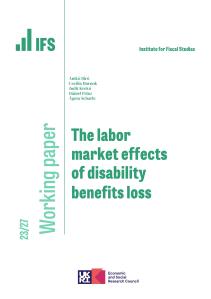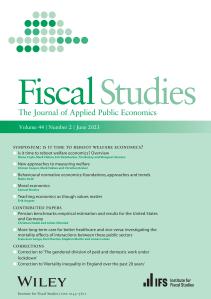Overall spending per person on benefits (including tax credits and the state pension) is only slightly higher in Scotland than in Great Britain as a whole. Within this, higher spending on old-age benefits and significantly higher spending on disability benefits is almost entirely offset by lower spending on housing benefit and the fact that there are fewer children per adult in Scotland, which leads to lower spending on child benefit and tax credits.
Recent years have seen benefit spending in Scotland grow less quickly than in Great Britain as a whole, narrowing what used to be a much larger gap in benefit spending per person. However, looking ahead, the projected more rapid ageing of the Scottish population suggests that, all else equal, benefit spending will grow somewhat more quickly than in Great Britain as a whole in the coming decades.
Independence – or the devolution of benefits policy and spending to the Scottish Government – would provide Scotland with an opportunity to make reforms to its benefits system, and in the process, reassess some aspects of current UK policy. That would allow an independent Scotland to improve a benefit system, parts of which make little economic sense – or, of course, to make its own mistakes. Radical reform will be difficult however: any major redesign of the system would either require Scotland to spend rather more on benefits than is spent now or else create large numbers of losers.
These are among the main conclusions of a new IFS report, funded by the Economic and Social Research Council (ESRC), that looks at the benefit system in the context of 2014 Scottish independence referendum.








